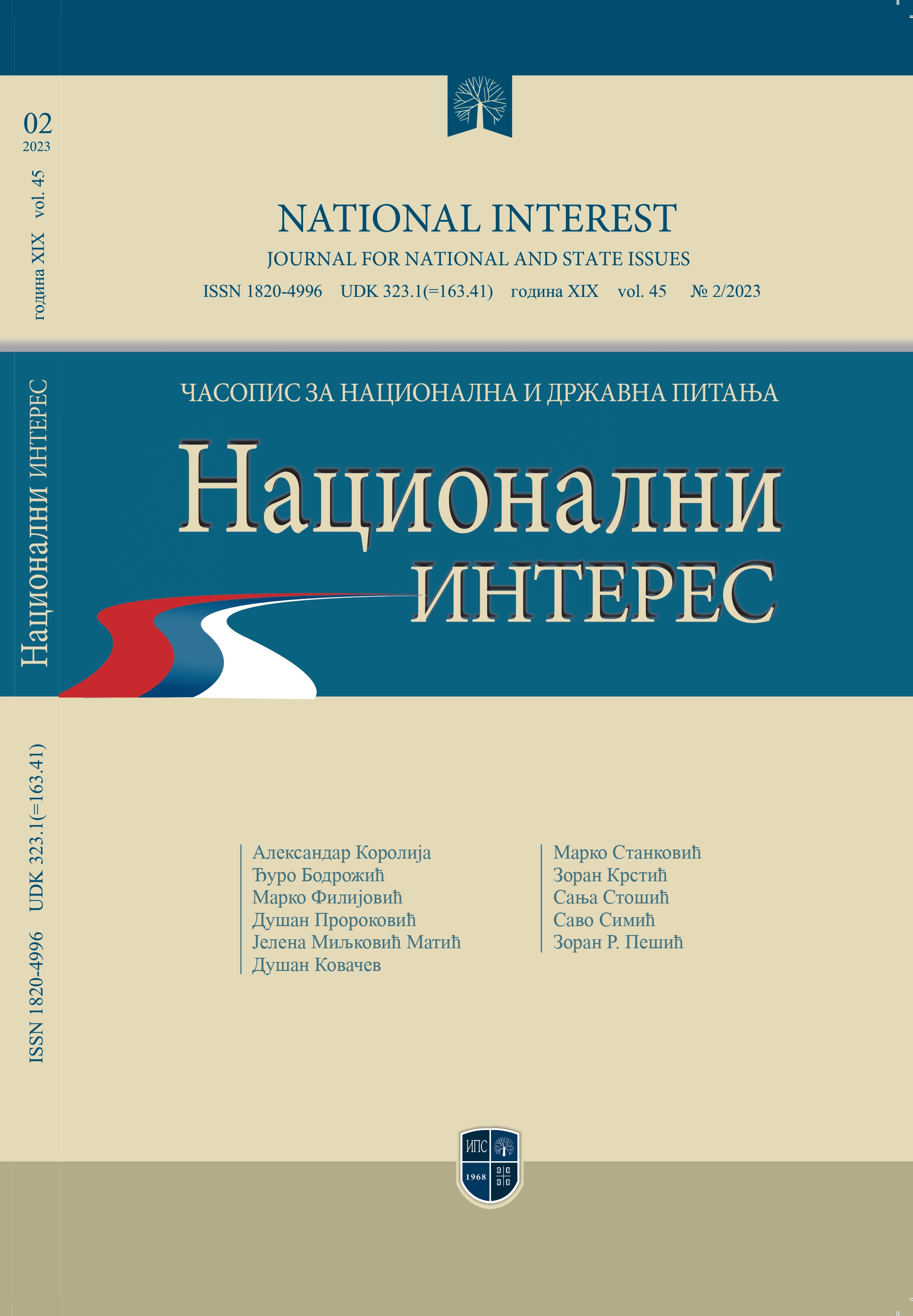NATION AND NATIONALISM – THE ORIGIN OF THE TERM AND HISTORY OF THE IDEA
Abstract
In order to know the nature of an ideal, it is necessary to know its origin and historical development – intellectual and social. Nationality is a cultural phenomenon, it is not tied to ideologies but to the cultural systems within which it arose and against which it arose. And these are, first of all, Roman Catholic universalism and dynastic kingdom.
The initial meaning of the term nation is not as we understand it in our time. Today's meaning of this term is associated with the French Revolution – a people under one government that knows itself in its own state. The greatest change brought about by the Napoleonic wars in domain of warfare was not military but political. A subject of the old regime became a citizen, he had the obligation to serve his military service and to fight if the nation asked for it. It was a change of the first order not only of military structures, it was about the birth of a nation and a national state.
A nation is a people that knows itself in its state, and the state does not bow down. And that is why it could be said that a nation is a people who are ready to die and kill for the idea of their homeland. And a nation-state is a state that entrusts its destiny to the hands of a conscripted army, fearing neither rebellion nor desertion.
References
Бернс, Делајл. 1993. Политички идеали. Ниш: Градина.
Бодрожић, Ђуро. 2008. Национална држава. Београд: Српска књижевна задруга, Партенон.
Бодрожић, Ђуро. 2018. Српски идентитет. Београд: Српска књижевна задруга.
Бодрожић, Ђуро. 2023. „Улога државе у обликовању и заштити националног идентитета”, Српска политичка мисао, Vol. 80 стр. 97-113, DOI: 10.5937/spm80-44375
Бубер, Мартин. 1997. „Национализам”, Градац, бр. 126/127.
Констан, Бенжамен. 2000. Принципи политике и други списи, Београд: Завод за уџбенике и наставна средства.
Кохенхаузен фон Фридрих. 1937. Велики Војсковођи, Београд: Геца Кон.
Милетић, Светозар. 1868. Беседа С. Милетића на угарском сабору у питању народности. Нови Сад: Платонова штампарија.
Попов, Нил. 1870. Србија и Русија. Београд: Државна штампарија.
Рабенау фон Фридрих. 1936. „Претходник”. У Фридрих фон Кохенхаузен, Од Шанхорста до Шлифена: сто година пруско-немачког ђенералштаба. Београд:Геца Кон.
Секулић, Исидора. 1966. Служба. Нови Сад: Матица српска.
Стојановић, Светозар 1999. „Нација, национализам и грађанизам”, Филозофски годишњак, бр. 12.
Тојнби Арнолд 2002. Проучавање историје. Београд, Подгорица, Службени лист СРЈ – ЦИД.
Токвил де Алексис. 1994. Стари режим и револуција. Сремски Карловци: Нови Сад, Издавачка књижарница Зорана Стојановића.
Хазони, Јорам. 2021. Врлина национализма. Београд: Clio.
Хајзинха, Јохан. 1996. Патриотизам и национализам у европској историји до краја деветнаестог века, Нови Сад: Прометеј; Београд: Терсит.
Anderson, Benedikt. 1998. Nacija: zamišljena zajednica. Beograd, Plato.
Arčer, Kriston I 2006. Kriston Arčer i drugi, Svetska istorija ratovanja, Beograd, Aleksandrija Press.
Keduri, Eli. 2000. Nacionalizam, Podgorica: CID.
Liah, Greenfeld. 1992. Nationalism, Five Roads to Modernity. London: Harvard University Press.
Smit D. Antoni 2010. Nacionalni identitet. Beograd: Biblioteka XX vek.
Šeling Fridrih. 1989. Filosofija mitologije, Beograd: Opus.
Tamir, Jael. 2002. Liberalni nacionalizam, Beograd: „Filip Višnjić”.
Vovelle, Michel. 1989. Revolucija protiv crkve: Od Razuma do Najvišeg Bića. Zagreb: Izdavački centar Komunist-Grafički zavod Hrvatske.

